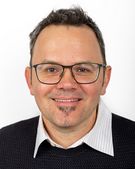Pediatric Praziquantel Consortium - Pediatric Praziquantel Consortium: Development and appropriation of a palatable, safe and efficent Praziquantel formulation to treat preschool-aged children for Schistosomiasis.
Project Abstract
Schistosomes, parasitic blood flukes, cause schistosomiasis, a chronic disease which can lead to anemia, severe damage of organs, reduced growth and, at worst, to death. Infection occurs if schistosomes larvae penetrate uncovered skin which is exposed to contaminated water. Therefore, this disease manly affects poor people living in rural agricultural and peri-urban areas. WHO estimates that at least 258 million people require treatment, and around 700 million people live in areas where the disease is common. More than 90% of cases occur in sub-Saharan Africa (GAHI).Thus, schistosomiasis poses one of the most prevalent tropical diseases with a large impact on public health and economy.
Today, the gold standard of treatment is praziquantel. Following the WHO-recommended control strategy, populations at risk receive regular praziquantel treatment. Unfortunately, this prophylaxis is only suitable for adults and school-aged children. Preschool-aged children are excluded from treatment programs since the drug is not registered below the age of 4 years and a child-friendly formulation is not available. The bitter taste of praziquantel often results in adverse reactions like vomiting. Therefore, a palliative, effective and safe praziquantel formulation stable in tropical environment to treat young children is absolutely required.
To reach this aim, the Pediatric Praziquantel Consortium was founded in 2012. The collaborating partners Merck KGaA, Astellas, Swiss TPH and Lygature, and since beginning of 2014 Farmanguinhos and Simcyp form a non-profit innovative partnership and provide expertise from many different areas. Together, they developed a full clinical program for a new formulation of praziquantel. Preclinical and clinical activities as well as access strategies have been defined. The program is in progress of starting the Phase II trials in spring 2016 in Côte d’Ivoire.
